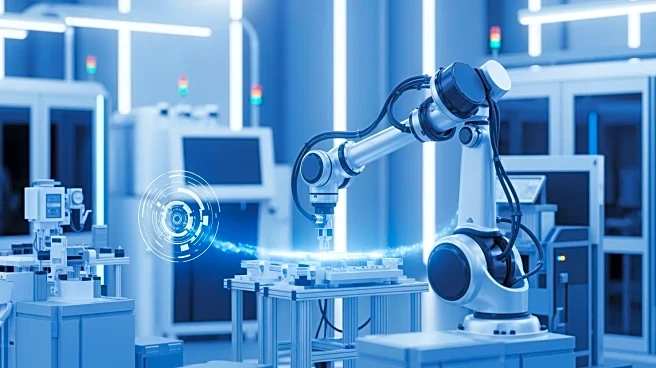What's Happening?
Amazon has announced a strategic reduction in its corporate workforce, planning to cut up to 30,000 jobs. This move is part of a broader initiative to streamline operations and manage costs effectively. The workforce reduction is expected to result in significant
cost savings, which will help offset increased depreciation expenses from Amazon's investments in AI infrastructure. These changes are anticipated to enhance Amazon's profit margins, potentially contributing a 6% increase to the projected operating income for 2026. Additionally, Amazon is focusing on efficiency gains through AI, which is expected to drive further margin improvements. The company's efforts in automation and inventory management are also likely to support continued growth in its retail margins.
Why It's Important?
Amazon's strategic decisions are crucial for maintaining its competitive edge in the retail and technology sectors. The workforce reduction and AI investments are expected to improve operational efficiency and profitability, which could lead to increased investor confidence and stock value. By streamlining operations and leveraging AI, Amazon aims to enhance its profit margins, which is significant for stakeholders looking for sustainable growth. The company's ability to manage costs effectively while investing in technology positions it well for future challenges and opportunities in the market.
What's Next?
Amazon's strategic moves may prompt reactions from various stakeholders, including employees, investors, and competitors. The workforce reduction could lead to discussions about employee welfare and corporate responsibility. Investors will likely monitor Amazon's financial performance closely to assess the impact of these changes on stock value. Competitors may also respond by adjusting their strategies to maintain market share. Additionally, Amazon's focus on AI and automation may influence industry trends, encouraging other companies to invest in similar technologies.
Beyond the Headlines
The ethical implications of Amazon's workforce reduction could spark debates about corporate responsibility and the impact of automation on employment. As Amazon invests heavily in AI, questions may arise about the balance between technological advancement and job security. The company's actions could set a precedent for other tech giants, influencing industry standards and practices regarding workforce management and technological investments.















